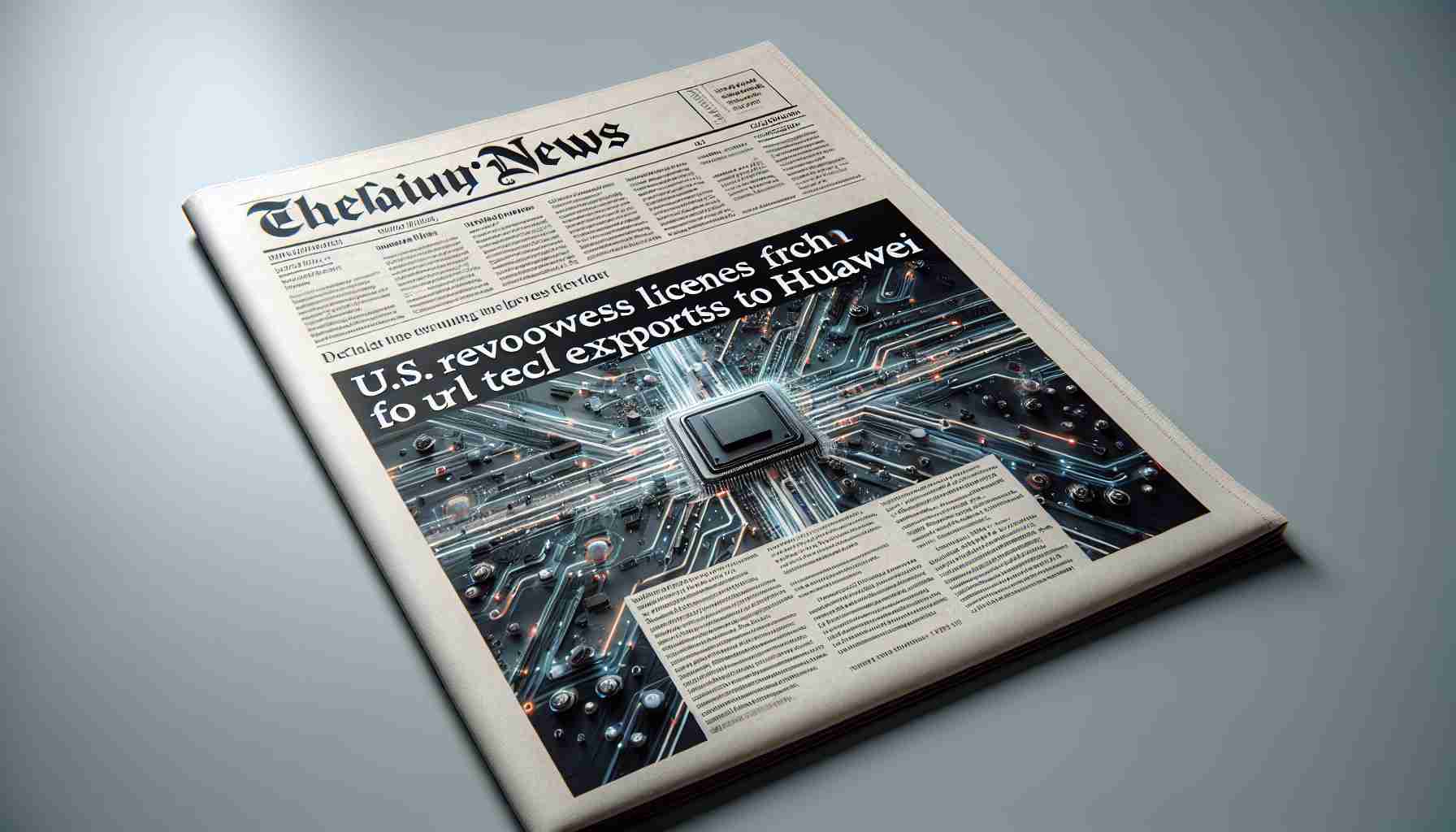The United States government has made a decisive move to curtail the technological capabilities of Chinese telecom giant Huawei Technologies. In a bold step, licenses that previously allowed U.S. companies to export computer chips and other goods to Huawei have been unexpectedly revoked. This change directly targets the supply of the latest Intel-powered AI laptop from Huawei, the MateBook X Pro, which raised concerns among U.S. policymakers regarding national security.
U.S. Administration Tightens Controls Over Huawei Exports
The clampdown comes after Huawei’s recent foray into advanced computing with the debut of its new laptop, leading to a flurry of criticism from Republican legislators. These officials felt that the product’s release implied an unofficial endorsement of chip sales to the blacklisted entity. In response, the Department of Commerce withdrew certain export licenses with immediate effect, albeit without specifying which ones, signaling a more stringent approach to the restrictions against Huawei.
This policy shift, initially unearthed by Reuters, aligns with the persistent demands from Republican legislators for President Biden’s administration to implement more rigorous measures. These actions aim to stymie Huawei’s technology progression and guard U.S. national security and intellectual property against perceived threats posed by the Chinese government’s influence.
Implications for Huawei and U.S. Suppliers
The license revocation could pose significant repercussions for Huawei, which still relies on U.S. technology, like Intel chips, for its computing devices. Concurrently, it may also impact American suppliers who have been doing business with Huawei. The tech giant was previously added to a U.S. trade restriction list over espionage concerns, making it more challenging for suppliers to transact with the company without special permission.
Despite these constraints, Huawei has continued to innovate, notably by introducing a new smartphone featuring a high-tech chip, speculated to have been produced counter to U.S. sanctions. The future of Qualcomm’s business dealings with Huawei also remains in a state of uncertainty. While the chipmaker’s patent agreement is up for renewal, its course of action is unclear amid these heightened export control measures.
Key Questions and Answers:
Why has the United States government revoked licenses for tech exports to Huawei?
The revocation is part of an ongoing effort to address national security concerns. U.S. officials believe that Huawei’s products could potentially be used for espionage by the Chinese government, and therefore, have decided to limit the company’s access to American technology.
What are the consequences of this decision for Huawei?
Huawei will face difficulties in sourcing essential components for its products, such as Intel chips, which could impede their ability to produce and sell advanced technological devices. This may lead to a significant setback in their operations and market competitiveness.
How does the revocation of export licenses affect U.S. companies?
U.S. companies that previously relied on sales to Huawei will lose a portion of their business, potentially affecting their revenue and influencing the broader technology supply chain. There could be adverse economic impacts for these suppliers due to the reduced market for their products.
What are the challenges or controversies associated with this action?
There is a complex interplay between ensuring national security and sustaining business relations. While security is paramount, companies argue for a balanced approach to regulation that does not unduly harm commercial interests. Additionally, some critics of the policy argue that it may provoke retaliation from China or push Huawei to develop independent capabilities, ultimately reducing U.S. companies’ global technological influence.
Advantages and Disadvantages:
Advantages:
– Enhances U.S. national security by preventing the potential misuse of American technology.
– Signals a strong stance on protecting intellectual property rights against foreign exploitation.
– Encourages U.S. tech companies to develop alternative markets and reduce dependency on a single foreign customer.
Disadvantages:
– U.S. companies lose a significant customer, which can lead to financial losses and job cuts.
– Could escalate trade tensions between the U.S. and China, affecting the broader economic relationship.
– There is a risk of China developing its own competing technology, reducing the global market share of U.S. tech companies in the long term.
For more information on the broader context of U.S. trade policy and international relations, you could visit the main U.S. Department of Commerce website at U.S. Department of Commerce or the homepage of the Office of the United States Trade Representative at U.S. Trade Representative. These sites provide official information and resources about U.S. trade policies and enforcement actions.
